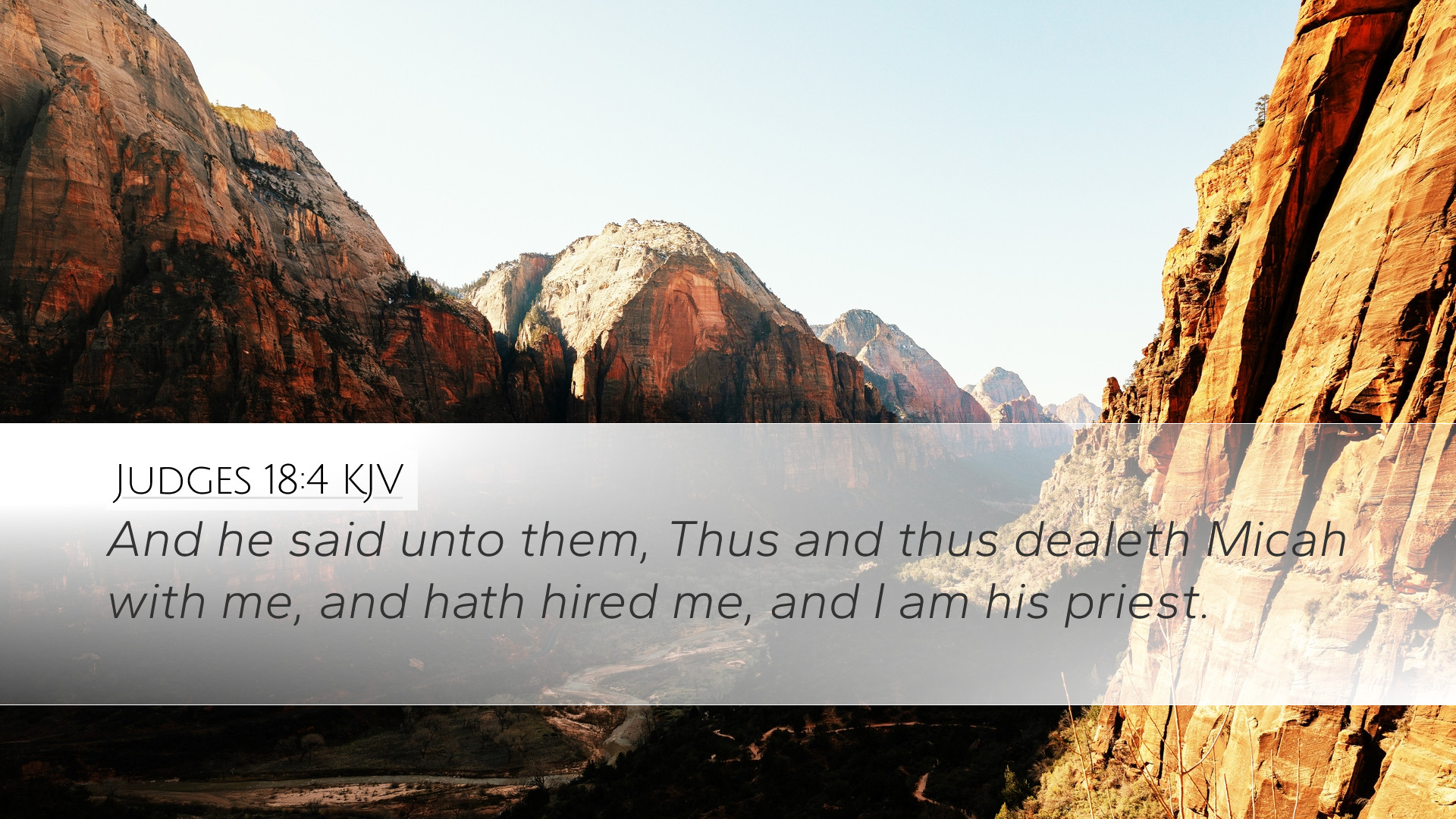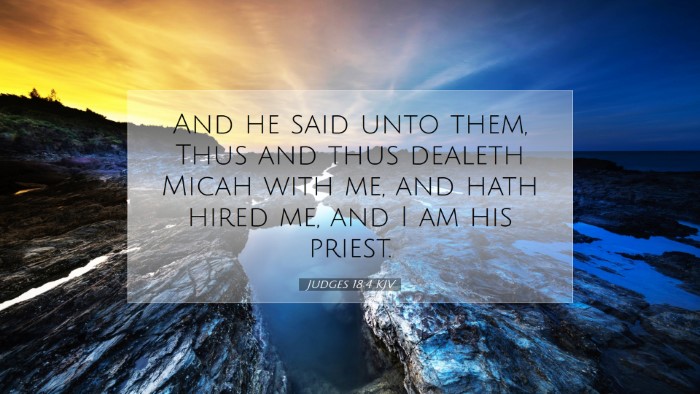Bible Commentary on Judges 18:4
Verse: Judges 18:4 - "And he said unto them, Thus saith Micah, I have hired me a Levite to be my priest, and I will be unto me a god."
Introduction
The book of Judges is a complex narrative that illustrates the cyclical pattern of sin, oppression, repentance, and deliverance in Israel's history. Judges 18 presents a significant episode in which the tribe of Dan seeks a land of their own, leading to the incorporation of Micah’s idolatry within their practices. Understanding this verse requires not only an examination of Micah's motivations but also the broader implications of priesthood, idolatry, and divine guidance.
Contextual Analysis
This passage occurs during a time when Israel was experiencing moral and spiritual decline. Each tribe was doing what was right in their own eyes (Judges 17:6), creating a fertile ground for a personal interpretation of worship and leadership that culminated in Micah hiring a Levite.
Micah’s Idolatry
Micah's actions reflect the propensity for syncretism, where elements of true worship are combined with pagan practices. He establishes a personal shrine and hires a Levite, which signifies a departure from authentic worship as ordained in the Law. The commentaries of Matthew Henry and Albert Barnes highlight that Micah’s choice to "hire" a Levite illustrates a commodification of spiritual authority, negating the sanctity of the priesthood. Micah's false religion mirrors the instability of the period.
The Role of the Levite
The Levite's role in this narrative is pivotal. Adam Clarke notes that the Levites, who were meant to uphold the worship of Yahweh, had become corrupted by the allure of material gain, exemplified by their acceptance of Micah's offer. The Levite’s presence in Micah's household signifies spiritual degradation and the failure to adhere to the Law, which prescribes the Levites’ sacred duties.
Theological Implications
Personal Religion vs. Corporate Worship
Micah's declaration, "I will be unto me a god," reflects a significant theological shift from communal covenant relationship to individualistic faith. This transition invites a discussion on the nature of God as personal versus the community’s understanding of God. Matthew Henry emphasizes that Micah created a god in his own image, indicating a severe theological error.
Rejection of Divine Order
By hiring a Levite and establishing his own system of worship, Micah rejected God’s ordained structure. Barnes articulates that this tendency to create personalized worship structures often leads to spiritual chaos – a theme that is prevalent throughout the Book of Judges. The macro-implication here is a warning about the dangers of personal interpretation of faith outside the community and divine order.
Application for Contemporary Church
- Understanding Authority: The passage teaches the importance of recognizing and respecting the authority instilled by God within the church’s leadership.
- Beware of Syncretism: The blending of personal beliefs with fundamental tenets of faith can lead congregations away from true worship.
- Community Worship: Emphasizes the need for communal worship that aligns with scripture and God's commands rather than subjective practices.
- The Importance of Call: Leadership in the church must be recognized as a divine calling, not a job or a means to personal gain, as reflected in the Levite's troubling compromise.
Conclusion
Judges 18:4 encapsulates critical themes concerning idolatry and the misrepresentation of divine worship during Israel’s turbulent times. Micah’s use of a Levite demonstrates the troubling intersections between faith, authority, and individualism. The exegesis of this passage serves as a powerful reminder for contemporary believers to seek genuine worship, rooted in biblical truth and guided by divinely instituted leadership, lest they fall into similar patterns of idolatry and spiritual compromise.


